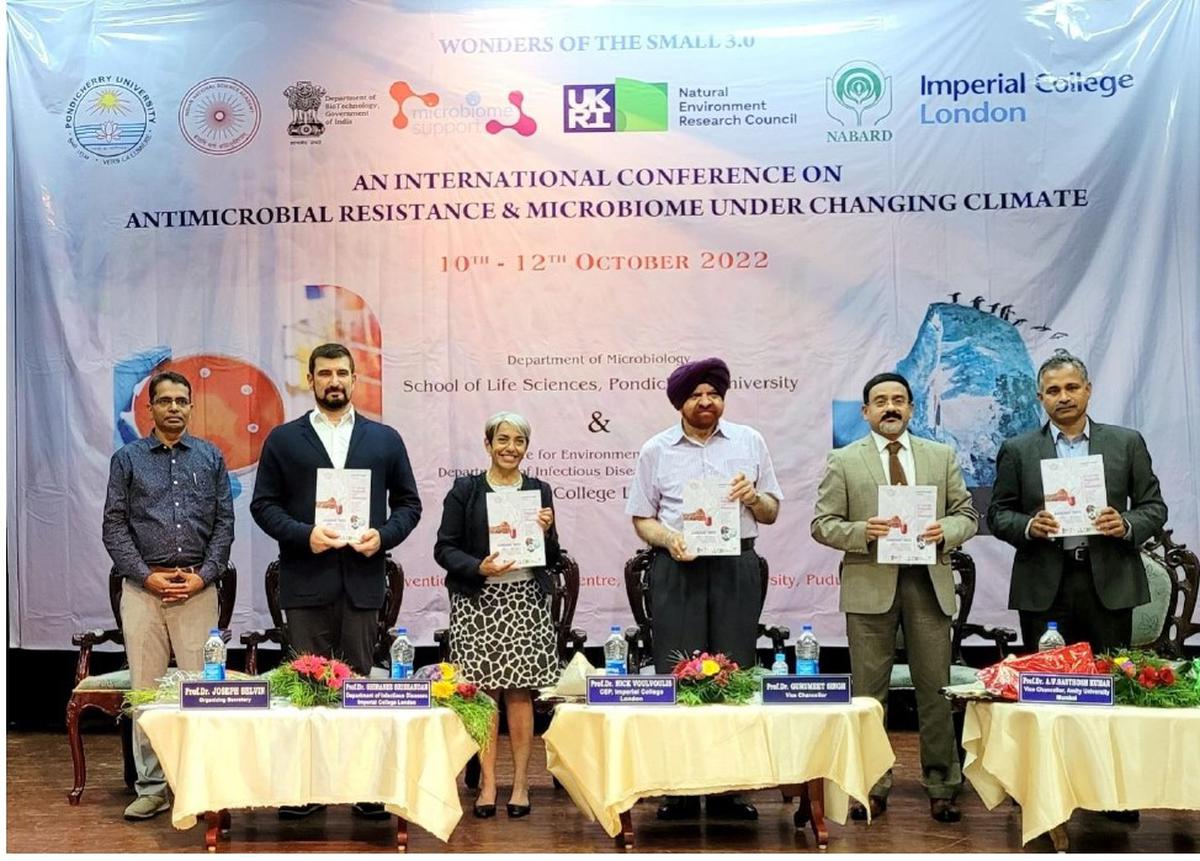
Meet focuses on threat of anti-microbial resistance
The Hindu
AMR occurs when infectious microorganisms survive in the presence of antimicrobials that are designed to control or kill them, and thus lead to weakened drug effectiveness
A team of experts from the UK were part of a recent conference that focused on the challenges posed by the potential rise in anti-microbial resistance in the post-COVID-19 world. According to experts who participated in the ‘International Conference on Antimicrobial Resistance and Microbiome under Changing Climate,’ co-hosted by the Department of Microbiology, Pondicherry University and Imperial College, London, the fears of secondary infections following COVID-19 have led to an escalation in antimicrobial use during the pandemic. Even as the COVID-19 pandemic has shattered millions of lives globally and continues to challenge public health due to the emergence of variants, some antimicrobials have been repurposed as treatment for SARS-CoV-2, further driving antimicrobial resistance exacerbating the task of curbing antimicrobial resistance. According to a press note from Joseph Selvin, Head of the Department of Microbiology, which is a collaborator of the India-UK joint project on Antimicrobial Resistance in the environment in India, experts have flagged Antimicrobial Resistance (AMR) as a growing global crisis that claims approximately 700,000 lives per year. The AMR crisis could also unleash severe and unpredictable negative health and economic consequences, with healthcare costs estimated at $300 billion to $1 trillion per year by 2050. AMR occurs when infectious microorganisms survive in the presence of antimicrobials that are designed to control or kill them, and thus lead to weakened drug effectiveness. Antimicrobials, such as antibiotics, are relied upon in human and veterinary medicine and agricultural systems to treat illness, reduce deaths, and produce food animals efficiently and profitably paradoxically, our use of antimicrobials is a major driver of AMR. India is a major producer of antimicrobials in the pharmaceutical industry global supply chain. Against this backdrop, research projects aim to develop a better understanding of how waste from antimicrobial manufacturing could be inadvertently fuelling AMR, he said. Gurmeet Singh, Vice Chancellor of Pondicherry University, inaugurated the conference, which is a part of the ongoing India-UK Anti Microbial Resistance project funded by Department of Biotechnology and Natural Environment Research Council, UK. The Imperial College delegation comprising Nick Voulvoulis, Centre for Environmental Policy, Shiranee Sriskandan, Department of Infectious Disease, Theodorous, Ana Freeman and Anna Veirra, also attended lab-based research meetings at the Department of Microbiology. Apart from the UK team, a host of national experts, including A.W Santosh Kumar, Vice Chancellor of Amity University and H. Prathap Kumar Shetty, Dean School of Life Sciences, Pondicherry University, also spoke. Scientific sessions also focused on the ‘alarming alliance’ between climate change and antimicrobial resistance (AMR). Global warming creates new breeding grounds for resistant bacteria, which challenge human, animal, and environmental health systems globally. AMR has been identified at top 10 global public health threat, and while 117 countries worldwide have government-approved AMR National Action Plans that align with the Global Action Plan for AMR, concomitant global challenges may threaten current AMR mitigation efforts.

Capt. Brijesh Chowta, Dakshina Kannada MP, on Saturday urged Union Finance Minister Nirmala Sitharaman to facilitate speeding up of ongoing critical infrastructure works in the region, including Mangaluru-Bengaluru NH 75 widening, establishment of Indian Coast Guard Academy, and merger of Konkan Railway Corporation with the Indian Railways.










